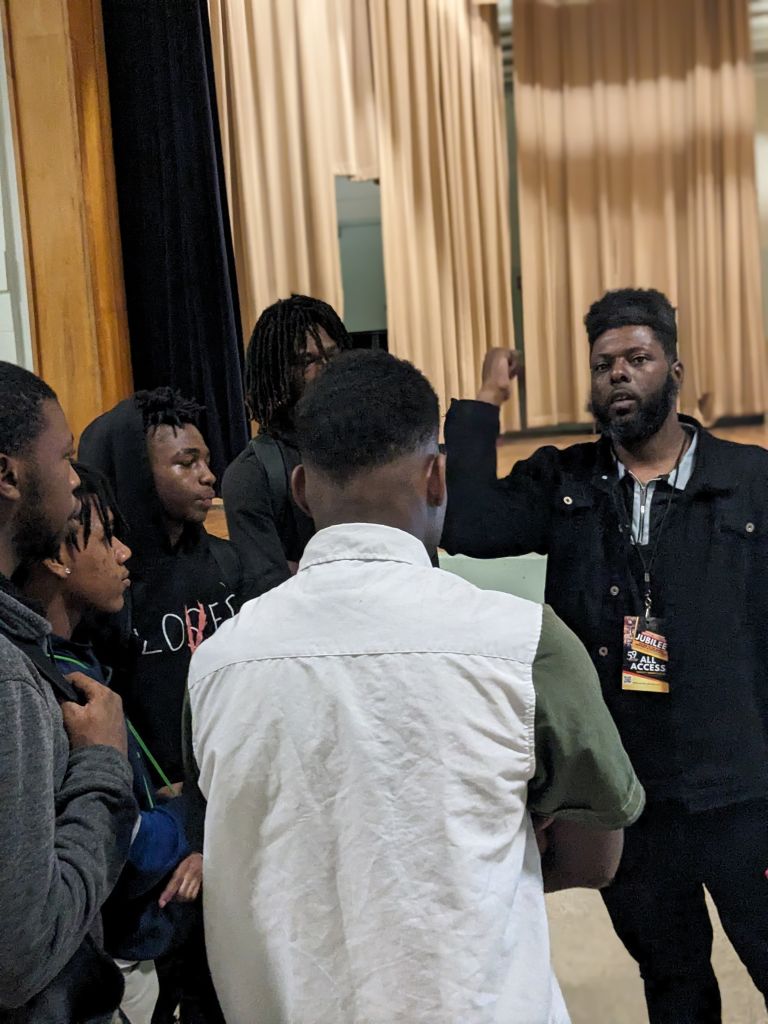Supply: Tory Russell
As the nation paused final week to commemorate the 59th anniversary of the Selma marches for voting rights that started with a day in infamy broadly referred to as “Bloody Sunday,” a more in-depth look reveals an elaborate agenda for individuals who traveled to the south central Alabama metropolis to look at and participate in occasions to honor the elders who paved the best way for Black folks to vote within the U.S.
Tory Russell, a Ferguson Rebellion Organizer, internationally acknowledged Black Motion Chief and Director of Organizing for the Worldwide Black Freedom Alliance, traveled to Selma for NewsOne and covered events that stretched far past the famed Edmund Pettis Bridge protesters famously crossed almost six many years in the past.
Hold studying to search out an array of images Russell took in Selma final week that shine a lightweight on how elders are maintaining the Bloody Sunday reminiscence alive not solely by means of the oral custom of preserving historical past but in addition by incorporating numerous education-based initiatives that make sure that the youth are geared up with the reality whereas they preserve urgent ahead for justice and equality.
In a poignant breakdown of the historic second he skilled amid occasions marking the essential second in U.S. and Black American historical past, Russel defined that “what we’re witnessing in Selma is a results of failed political events and politicians promoting Black folks hope in each election cycle however delivering nothing; activists promoting their souls for a seat at their oppressor’s desk as an alternative of constructing their very own; and a ‘civil rights motion’ that wasn’t coined by anybody within the precise motion as an alternative by their funders.”

Tory Russell, at proper, speaks with the youth in Selma. | Supply: Tory Russell
Russell questioned: “How did the ball get dropped for 2 consecutive generations to maintain a motion?”
Nonetheless, the motion’s spirit was in full impact in Selma final week with occasions like a mock trial with Black youth from Selma Excessive Faculty and teach-ins at space excessive colleges “offering precious perception from the folks concerned almost 60 years in the past,” Russell wrote.
Russell documented his expertise assembly with Bloody Sunday elders by recording video footage of interviews with them together with numerous images from his week-long keep within the southeastern Alabama metropolis.
Hold studying and scroll down to search out some alternative photos captured by Russell alongside notable folks like Alabama State College professor and movement scholar Dr. Robert White, Pan-African educator and author Obi Egbuna Jr. and Dr. Mae Christian, who he mentioned “organized earlier than, throughout and after Bloody Sunday all the best way to the White Home garden in civil disobedience protests for rights within the late Sixties”:
“Transcend the bridge and also you’ll nonetheless see a Selma that wants a motion,” Dr. Christian instructed us. So we did. And what we discovered was that Selma was and is way more than simply Bloody Sunday. Selma’s points lengthen means past voting rights and desegregation. Their points are the identical points that plague many Black folks situated in cities and cities throughout the U.S.
